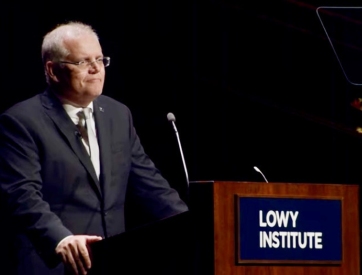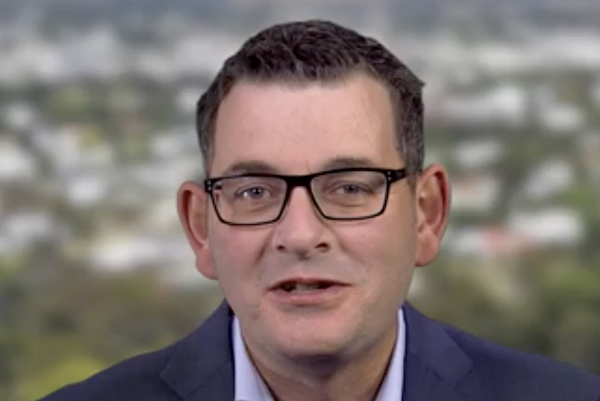While the Work for the Dole program has good intentions, it is laden with problems rendering it largely ineffective, writes Tarric Brooker.
IN AUSTRALIA, we pride ourselves on the egalitarian nature of our society, a nation of people who believe in the ideal of a fair go and that our government should ultimately do right by the Australian people.
However, there is a policy area where the Australian public has a political blind spot, where the ideals of a fair go and the egalitarian nature of society don’t seem to extend, as thousands of Australians are forced to suffer indignation in relative silence.
Work for the Dole (WfD) is a policy that requires jobseekers to take part in community-based work after a set amount of time on Newstart allowance (unemployment benefits). With WfD, there is no real possibility for not taking part, as doing so would lead to an individual’s payments being cut off.
For many unlucky jobseekers, WfD takes the form of picking up garbage at the side of the highway, digging holes in a community park or stacking shelves in a Christian charity op shop. The architects of the WfD program claim that doing these tasks can improve job prospects and lets job seekers ‘develop the skills that employers want’.
If being forced to do these types of jobs sounds very much like the type of thing individuals sentenced to court-ordered community service are judicially compelled to do, then you’d be right.
WfD participants have ended up doing the same jobs as individuals who are complying with community service.
Former Assistant Employment Minister Luke Hartsuyker said the government could not ensure people who work for the dole would not end working alongside people completing court-ordered community service.
The reality is jobseekers, whose only crime is being unlucky enough to be unemployed, are being treated in much the same way as criminals, where the punishment for failing to work for the dole is not being able to afford food or to put a roof over your head.
Except, unlike those forced to serve a community-based sentence for committing a crime, job seekers don’t have a hard out after a certain number of hours. For unemployed Australians, WfD continues until you either find a job or are transferred to another “stream” of the job network.
Ashley Geelan, 36, who previously did court-ordered community service for traffic offences said the work-for-the-dole experience was “demoralising”.
“When you’re trying to turn your life around and you end up back at the same place where you were doing community service, it’s like you’re being treated like a criminal.”
Some WfD participants have been forced to continue taking part in the program, even after receiving advice from mental health professionals in writing that concluded their continued participation was detrimental to their health.
Lawyers familiar with WfD said it was “punitive” and “mind-numbing” and said it left job-seekers in risky situations without adequate insurance and other protections.
Remote aboriginal communities hit hardest by discriminatory LNP work for the dole scheme https://t.co/pibOluUFba
— Lanz Priestley (@LanzPriestley) September 27, 2018
This exposure to risky situations for WfD participants, unfortunately, culminated in the death of 18-year-old Josh Park-Fing in 2016. Josh died after falling from the tray of a flat-backed trailer being pulled by a tractor which hit a bump, causing it to slip a gear and jolt.
The Federal Government has denied that claims that WfD placements are unsafe.
However, in 2016, a government-funded report suggested 64 per cent of Work for the Dole worksites failed to meet “average” health and safety standards.
As of 2015, the only peer-reviewed Australian study to quantify whether WfD improves the chances of finding employment found that:
‘Participation in the WfD program is found to be associated with a large and significant adverse effect on the likelihood of exiting unemployment payments. The main potential explanation is existence of a “lock-in” effect, whereby program participants reduce job search activity.’
Work-for-the-dole is a program that has never really begun to achieve its stated aim of getting unemployed Australians back into the workforce. It has functioned as a punitive measure held over the heads of jobseekers, forcing them to either engage in what usually amounts to menial labour for an extra $20.80 a fortnight or choose to go off unemployment payments entirely.
As long as jobseekers continue to be put into a very similar basket as those are being punished for committing criminal offences, work-for-the-dole will remain a blight on the egalitarian nature of our society. It will continue to serve as a reminder that there is a part of our nation where the ideals of a fair go and the government genuinely helping those who need it don’t really seem to apply.
This is so out of touch with reality. Most Newstart recipients have to give over their medical & union info & work for the dole. No money given. It all comes at a high price. Must work for less than $10 per hour, no super, no holidays, no rights. Not funny. Jobactive abuse. https://t.co/rJDlqoqgNl
— Bella Ella (@ourconversatio1) September 25, 2018
Tarric Brooker is a freelance journalist and political commentator.
Two degrees but cleaning toilets: What it's like to #work for the dole https://t.co/dzT85MNrhY pic.twitter.com/7Ge1VnfyPl
— Vanessa Fearn (@vanessafearna) September 24, 2018
 This work is licensed under a Creative Commons Attribution-NonCommercial-NoDerivs 3.0 Australia License
This work is licensed under a Creative Commons Attribution-NonCommercial-NoDerivs 3.0 Australia License
Support independent journalism Subscribe to IA.












